Iran’s Second Cyberattack On Albania Draws US Condemnation
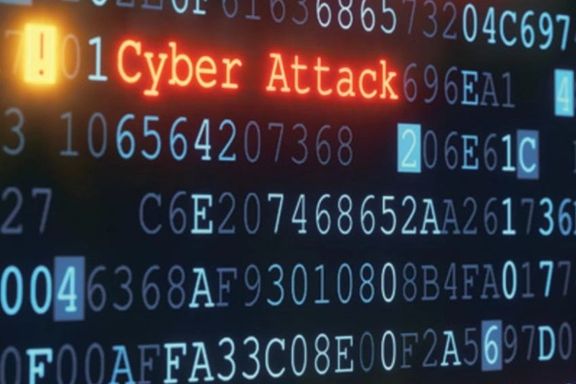
Albania says the Iranian government has attacked the computer systems used by its state police a few days after Tirana cut diplomatic ties with Tehran over a similar cyberattack.

Albania says the Iranian government has attacked the computer systems used by its state police a few days after Tirana cut diplomatic ties with Tehran over a similar cyberattack.
Albania’s interior ministry said Saturday that the latest hack, which occurred on Friday forced Albanian officials to temporarily take offline its Total Information Management System (TIMS), a system for tracking the data of those entering and leaving the country.
Albanian Prime Minister Edi Rama said on twitter the cyberattack was carried out by the “same aggressors” behind the July hack, that disrupted Albanian government services.
On Sunday, Washington condemned the recent attack against its NATO ally, saying, “The US government is supporting Albania’s efforts to mitigate and recover.”
The United States Treasury Department Friday sanctioned Iran’s intelligence ministry for “cyber operations” against the US and allies, a day after White House and NATO allies condemned the attack.
The attack happened around the time of a conference of the exiled Iranian Albania-based opposition group Mujahideen-e Khalq (MEK). In early August, cybersecurity firm Mandiant expressed “moderate confidence” the attackers were acting in support of Tehran’s efforts to disrupt the MEK conference, which had to be cancelled as well due to a terror threat.
Iran’s foreign ministry Thursday rejected accusations about the alleged cyberattack. Relations between Tehran and Tirana have been tense since 2014, when Albania accepted some 3,000 members of the MEK.
Tehran alleged Saturday that the US has trained and equipped MEK for “cyberattacks and psychological warfare” against Iran.
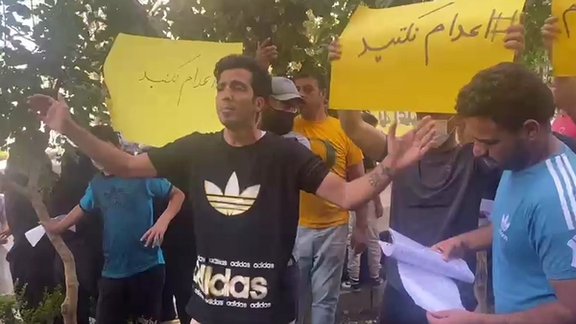
Iranian security forces attacked Sunday a gathering of families of convicts sentenced to death in front of the building of the Judiciary and made several arrests.
According to videos posted on social media police tried to disperse the protesters, who were insisting on keeping the continuing their vigil.
The protesters were carrying placards with the slogans "Don't execute" and "No to execution."
There is no confirmed report of the number of detainees yet, but social media photos and videos show that there were children among the arrested people.
The families of prisoners sentenced to death have been holding demonstrations in front of the Revolutionary Court in the city of Karaj and the judiciary in Tehran for the past week, demanding a halt to the execution of their family members and relatives.
Regular protest rallies with various demands have been held in Iran in recent years, but the gathering of families of prisoners sentenced to death is a rare event.
Late in July, two human rights organizations said Iran has embarked on an execution spree at a “horrifying pace” with at least 251 hangings between January 1 and June 30, 2022.
Amnesty International and the Abdorrahman Boroumand Center for Human Rights in Iran said in a report that the actual number is likely higher, as authorities keep secret figures on death sentences passed and executed.
On June 16, UN Secretary General António Guterres released a report on the situation of human rights in Iran, decrying “the high number of death penalty sentences and executions.” The UN chief said that the number of executions in Iran increased from at least 260 cases in 2020 to 310 individuals in 2021, and the number continued to rise into 2022.
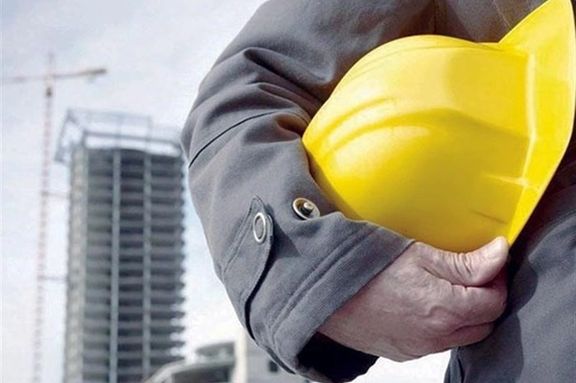
Iran’s export of technical and engineering services has declined to about $500 million from the figure of $5 billion about 10 years ago, an official says.
The head of the Iranian Association of Exporters of Technical and Engineering Services, Bahman Salehi-Javid, said on Sunday that the exports reached $5billion dollars in 2010 and was projected to reach $35 billion dollars, but "today it has decreased to $500 million.”
He added that the Islamic Republic invested heavily in Syria’s financial, engineering, and military sectors but "did not manage to participate in the projects of this country as much as it had invested,” leading to losses by many Iranian contracting companies in the country.
Salehi-Javid also said there is a $800-million debt to Iranian companies for different projects in Iraq.
In the last two years, numerous reports have been published about Iran's losses and debts in Syria and Iraq, where Iran tried to expand its political and military presence by offering free or cheap services and goods.
Earlier in September, the head of the Trade Promotion Organization of Iran, Alireza Payman-Pak, said that export of technical and engineering services in the current Iranian year (which started on March 21) registered a 31-percent growth as compared to the same period of last year without providing any figures for his claim.
In January, the head of Tehran Chamber of Commerce, Masoud Khansari, said Iran’s export of technical and engineering services has plummeted to about $200 to $300 million from about $5 to $6 billion in the past few years.
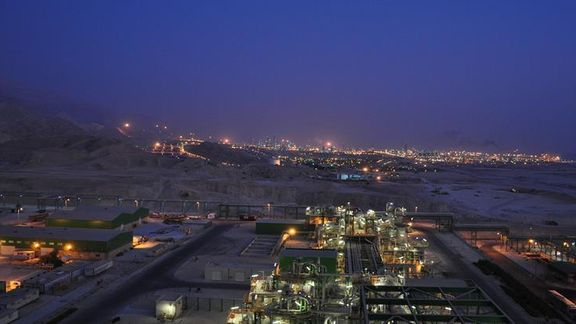
A $170 million apparent embezzlement case has left one of Iran’s natural gas producers in serious trouble and might reduce production at the onset of winter.
The issue of possible fraud or some sort of corruption is not straightforward as one might expect in a typical Western company. There are Iranian nuances in the case that makes it a bit different.
Mehr Petrochemicals produces the highest-grade polyethylene in the Middle East but it stands at the verge of bankruptcy, according to Eghtesad Online (Economy Online) a recognized website in Iran reporting on economic issue.
The firm belongs to Persian Gulf Holding, a large Iranian quasi-governmental company that claims to be an independent entity, with 15 subsidiaries.
Mehr Petrochemicals, as an Iranian company is supposed to repatriate its foreign currency earnings according to law, as it exports products and receives government dollars at preferential rates when it for importing equipment or chemicals. The problem is that it has failed to bring back $170 million to the country and apparently the money has simply vanished.
The Iranian Inspector General’s office has issued a report saying that Mehr owes close to $100 million locally and its export revenues are missing.
The danger in the company going bankrupt and shutting down is loss of gas output in the South Pars fields in the Persian Gulf, Iranian media say. Mehr plays a role in gas production because it needs it for producing petrochemicals.
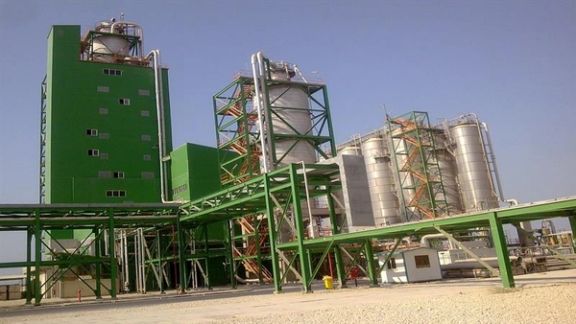
In the middle of the scandal stands a mysterious and unnamed foreign investor, reportedly a firm registered in Italy. The story goes back seventeen years, when Mehr Petrochemicals was established with a 60-percent foreign stake by a Japanese-Thai consortium, with some management rights over the company.
In 2018, in the wake of renewed economic sanctions by the United States, the foreign investor decided to divest of its stake in the company. It offered to sell its share to the Persian Gulf Holding for a certain price, which has not been disclosed. Iran appointed a commission to assess the value of the asset and it came back with a very low estimate that the foreign stakeholder refused.
At this point, the mysterious Italian company entered the picture and offered enough money to the Japanese-Thai consortium to buy their shares.
The whole affair of not buying the consortium’s shares and then agreeing to an Italian company, that according to Iranian media had no track record in the petrochemicals business, to buy 60 percent of Mehr is all shrouded in mystery and lack of transparency. This is common in Iran’s sprawling public and quasi-public sector that controls 80 percent of the economy.
Political and economic interests and spheres of influence are often so closely intertwined that it is impossible for the media and even members of parliament to demand and receive transparency.
The so-called Italian investor could well be a group of well-connected government and military officials who simply offered a very low price to the original foreign investor who bulked, and then set up a front company abroad and bought the 60-percent share themselves.
With Iran short of natural gas, local media warn of a worse situation this winter if Mehr Petrochemicals stops operations. There is already ongoing labor strikes and protests as many other petrochemical and oil outfits linked to the government delay salaries.
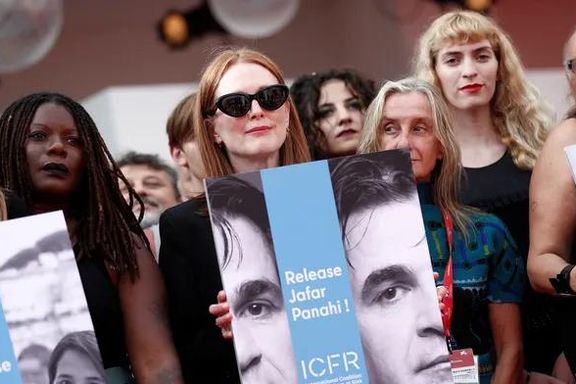
The Venice Film Festival awarded its Special Jury Prize to jailed director Jafar Panahi after participants called for the release of jailed Iranian filmmakers.
Panahi, one of Iran’s most acclaimed directors, who is currently serving a six-year prison sentence from a decade ago, received the awardfor his latest film ‘No Bears’. During the screening of the film Friday an empty chair stood for Panahi.
Directors, actors and activists attending the festival led by jury head Julianne Moore and Audrey Diwan gathered on the red carpet Friday and held up placards with Panahi’s face and the the message: “Release Jafar Panahi!” ahead of the Venice world premiere of his film.
The festival also awarded the Orizzonti (Horizons) Award for Best Film to Iranian director Houman Seyedi for “World War III”, and Orizzonti Best Actor Award to its lead actor Mohsen Tanabandeh. “World War III” is a dark comedy which tells the story of making a film about the Holocaust in Iran.
Panahi, who has also won the Golden Leopard at Locarno Festival, the Golden Lion in Venice, and the Silver Bear at the Berlinale in the past, was first arrested in 2009 for participating in anti-government protests and twice in 2010 and sentenced by a Revolutionary Court to six years in prison and a 20-year work ban but the prison sentence was suspended. since then, he has made his films, including ‘This Is Not A Film’ in 2011, stealthily in defiance of the ban.
He was arrested again last month for protesting the July 8 arrest of two other renowned filmmakers, Mohammad Rasoulof, director of Berlin Golden Bear winner There Is No Evil (2020), and Mostafa Al-e Ahmad (Poosteh) at Tehran’s Evin prison.
Rasoulof and Al-e Ahmad were arrested as part of the Iranian crackdown on the signatories of a collective statement titled “Lay down the gun” issued by more than 100 film industry personalities in the end of May.
Renowned Iranian actress Leyla Hatami was a member of the jury of the Venice International film festival this year. Like other female Iranian artists who live and work in Iran, she appeared in a stylish long dress and headscarf. All female Iranian artists have to abide by the compulsory Islamic dress code (hijab), not only in Iran and in public, but also in films and at foreign film festivals.
Officials of Iran’s clerical government and hardline media often accuse dissident artists and filmmakers, particularly those whose works are awarded by foreign film festivals, of presenting a “dark image” of the Iranian society in their films.
Iran's minister of culture and Islamic guidance Mohammad-Mehdi Esmaili said recently that Iranian films cannot participate in foreign film festivals if they are not authorized to be shown in Iran. “The future of those who act against our national interests, speak against the Iranian people, and take advantage of the cruel sanctions against the Iranian people, is clear.”
Artists, filmmakers, and producers who promote the Islamic Republic’s values and policies, however, receive great support and funding from government organizations.
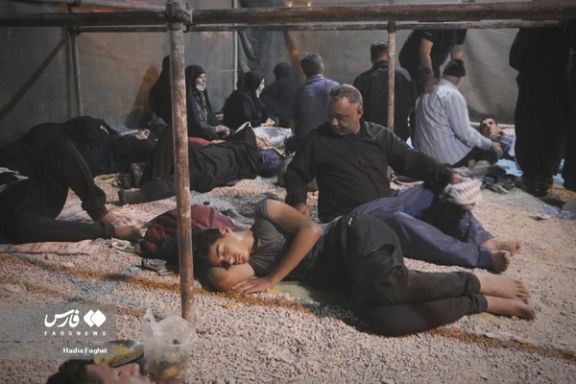
Over a dozen people, including an official of Iran’s Armed Forces, have died in accidents related to the massive Iranian pilgrimage to Iraq’s Karbala, encouraged and supported by the government.
Iran’s Red Crescent Society announced on Saturday that four Arbaeen pilgrims died in the Iraqi city of Hillah after a van overturned.
Moreover, the head of the society said a passenger bus explosion in Iraq's Babylon province has killed at least 11 and injured 30 others. All the dead were Iranian nationals, Tehran's ambassador confirmed.
An official of the Army’s Foundation for the Preservation and Publication of Sacred Defense Works and Values, Taghi Hosseini, also died along with his wife in another accident near the Mehran border crossing.
On Friday, the Red Crescent Society announced that at least nine Iranians died on their way to the Iraqi city of Karbala for the Shiite religious event. Three more Iranians died earlier in the week in Iraq's Wasit Governorate, which borders the Islamic Republic.
The pilgrimage has turned into an embarrassing debacle due to the government’s mismanagement of the event. Pilgrims have been stranded at dangerously overcrowded border checkpoints and on the roads in the past few days.
Social media is full of posts and videos of people complaining about the crowded border crossings with insufficient facilities.
A lawmaker said on Saturday that the government's mismanagement is "evident" in the incidents during the Arbaeen ceremony, blaming authorities, the interior ministry in particular, for the mishaps and mayhem.